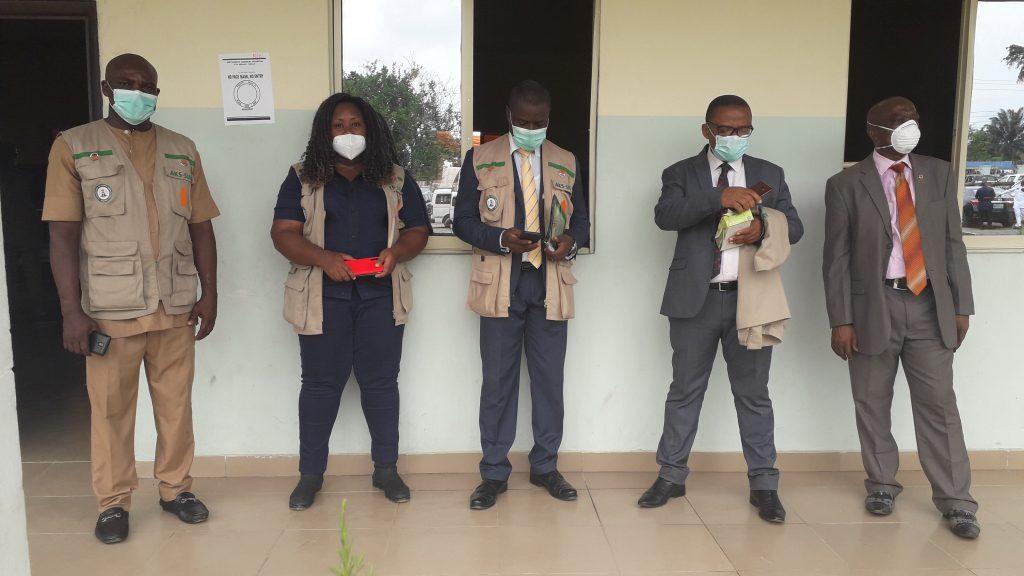
The world is reeling in the throes of its greatest pandemic since the Spanish Flu of 1918. Coronavirus Disease (COVID-19), a ( mainly) respiratory illness caused by a novel coronavirus has disrupted human lives, economies and governments on a global scale, and the end is not in sight. By now, there are over 7 million (confirmed) cases and more than 400,000 deaths, globally.
In Nigeria, Africa’s most populous nation, the first case was confirmed on 27 February 2020. Over the next few days the outbreak worsened progressively necessitating travel restrictions which culminated in full closure of all international airports and land borders. Currently, the outbreak is still evolving in Nigeria and new confirmed cases are being added to the numbers daily. Officially, Nigeria has recorded almost 13,000 cases of coronavirus and 361 deaths. But that’s no doubt an underestimate, as even the Minister of Health seemed to admit earlier this week when she said that up to 60 per cent of the hundreds of deaths in Kano province in April were probably linked to Covid-19.
Still, the country was not ambushed. Already in February, the Nigerian government set up a Coronavirus Preparedness Group. The Coronavirus Preparedness Group has representatives from the Federal Ministry Of Health (FMoH), Office of the National Security Adviser (ONSA), World Health Organization (WHO), US Centers for Disease Control (US-CDC), Pro-Health International (PHI), Public Health England (PHE) and staff of the Nigeria Centre for Disease Control (NCDC). Together, they assessed and managed the risk of importation of the disease to Nigeria, while also making preparations for early detection and response. Their efforts accelerated preparedness for COVID-19 and helped the country to cope with the demands of managing a novel coronavirus in a resource constrained setting.
Nevertheless, in spite of their great efforts, the country has been inundated with challenges in coping with the COVID-19 outbreak. After the first case was confirmed in February, there was nationwide unease. As the outbreak progressed and cumulative confirmed cases grew (with also a few deaths recorded), and stringent lockdown measures were declared with embargoes on land, air and sea travel, untold suffering took place in the country. COVID-19 has been particularly punishing to the less privileged despite appearing, initially at least, as a disease of affluence due to the profiles of many self-confessed celebrities and government officials who fell ill early in the outbreak.
The adversities of the COVID-19 outbreak are unquantifiable. The outbreak sparked unprecedented public panic and led to financial loss beyond any previous prediction, model or estimate. Lives have been lost, people have been permanently disabled, essential health services severely affected, … Conservative analyses show that these effects may last long after the outbreak is contained and yet today, the end of the outbreak (nationally and internationally) is not in sight.
It’s fair to say, though, that despite this dire situation, the COVID-19 outbreak in Nigeria has also galvanized individuals, professional bodies, communities and governments to the most rapid, committed, whole-hearted response recorded to a public health crisis in recent memory. Perhaps it was the frenzy fueled by the unrelenting coverage of the daily deaths in China, and then Italy, Spain, US, …; perhaps it was the uncertain nature of the transmission, perhaps it was the novelty of the virus and the conflicting reports received about case fatality, … whatever it was, individuals cared more about COVID-19 than they have cared about any disease of public concern since HIV was discovered in 1986.
So despite the grim picture, there is also great potential for the creation of social, structural and public health goods in the midst of the outbreak. Amongst others (and the list is anything but exhaustive!): health system strengthening, community investments in health, improvements in health security, increased women’s participation in health leadership, UHC demands, increased budget allocation for health, planetary health advocacy, greater global public health coordination and collaboration, One Health process strengthening, health workforce capacity development, …
These have all required greater attention for aeons but there is no time like now for everyone to take decisive action to make substantial progress on them, both globally and in Nigeria.
That’s not to say this will be easy. Recent reports in the Guardian mention plans by Nigeria’s government to cut healthcare spending, with some of the reasons cited for the cut, “dwindling oil sales, the crash in global oil prices and the impact of the coronavirus pandemic”. Apparently, “Funding for local, primary healthcare services will be cut by more than 40% this year (in a revised budget expected to be passed into law in the coming weeks). “ Let’s hope the last word hasn’t been said about this revised budget. In any case, the health workforce (both nurses and doctors) will not just happily go along with these government plans. The country’s biggest union representing doctors just announced a planned strike, on 15 June, that will effectively cripple the government’s coronavirus response, to protest against low salaries and poor working conditions.
The battle for a fairer world, to “build back better”, also in my country Nigeria, has only started.
COVID-19 has been a great catastrophe of cataclysmic proportions (and it’s nowhere near over yet, unfortunately) but if we could make gains in the above listed areas, while trying to cope with the pandemic, then the devastation and disruption won’t have been entirely for nothing. I’m convinced some good can still be salvaged from this maelstrom.
So let’s do it. Let’s do it now. And let’s do it together.